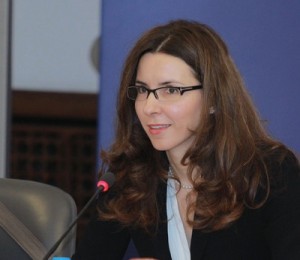The final audit reports on OP Environment and axis 3 of OP Regional development are ready
Today we submit the final audit reports to the European Commission. The good news is that they confirmed that the systems for management and control of both OP Environment and Axis 3 of OP Regional Development were working”, Deputy Prime Minister Iliyana Tsanova said after taking part in City Forum. She expects that experts from the Commission will be in Bulgaria next week for a final review and audit. “If the outcome of this visit is positive, payments to Bulgaria will be resumed”, the Deputy Prime Minister said. This was agreed at her meeting with Commissioner for Regional Policy Johannes Hahn on September 5 in Brussels.
Technical time was required to resume payments, the Deputy Minister said, adding that the funds could be received in late October or early November. “There is still a little more work left to do on Axis 1 of OP Regional Development and I expect a positive results by the beginning of next year”, she said.
In her speech Deputy Prime Minister spoke of the role of EU funds for economic development with a focus on infrastructure and cities in 2014-2020. The Partnership Agreement with the European Commission is Bulgaria’s strategic plan for investment and reforms that would contribute to the much needed economic growth of the country, creating jobs and improving the quality of life of Bulgarian citizens, Iliyana Tsanova said. Bulgaria would receive EUR 9.8 billion from the European Structural and Investment Funds over the next seven years.
“Not a single euro is guaranteed though – there is a lot of work ahead of us in order to be able to invest the resources in quality projects in a transparent, effective and lawful manner; to carry out the necessary reforms so as to achieve the optimal effect of investment - not only of EU funds, but also of national resources; to develop our capacity so that we manage to take full advantage of this resource without losing money, to learn our lessons and reduce errors”, the Deputy Prime Minister said. According to Iliyana Tsanova, European funds and programs provided opportunities for the country, which could not be compensated by any other source, especially in times of economic crisis: “From 2012 to 2014, the funds invested in construction from European sources largely exceed national investment. For example, out of all construction contracts concluded by municipalities over the past three years totaling BGN 5.7 billion, 76% are financed with European money, which is more than BGN 4.3 billion. These data indicate that the basic infrastructure (roads, facilities, urban areas, treatment plants), which is fundamental to the national economy, is mainly financed with EU resources under OP Environment, OP Regional Development, OP Transport and the Rural Development Program. They are of structural importance for the country. We saw what happened after payments under OP Environment and the two Axes of OP Regional Development were stopped – it had an extremely negative effect on the economy and the budget. This dependence of the Bulgarian economy on European money means only one thing – a clear commitment by the country and contractors to ensuring transparency and efficiency in order to guarantee a continuous investment process”.





